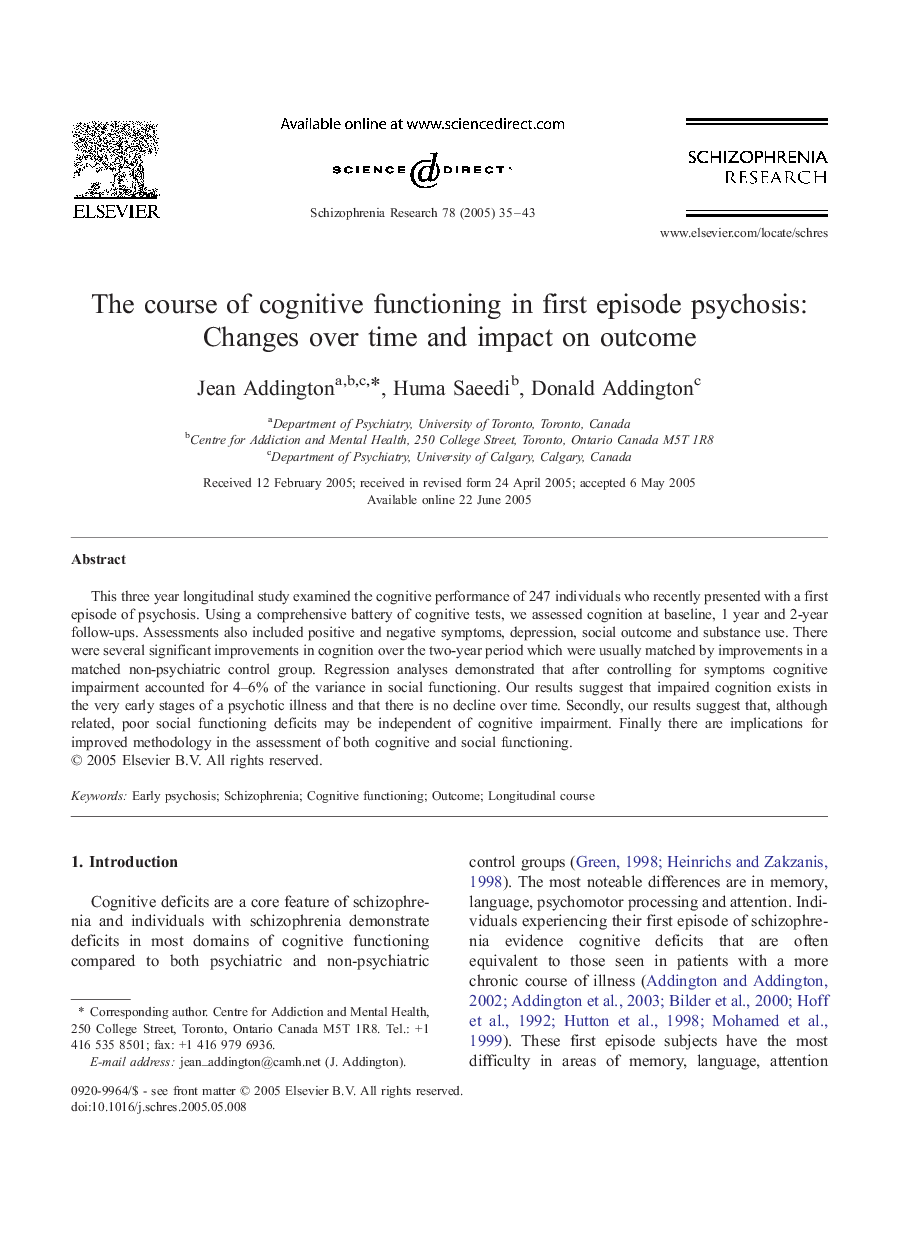| Article ID | Journal | Published Year | Pages | File Type |
|---|---|---|---|---|
| 10308133 | Schizophrenia Research | 2005 | 9 Pages |
Abstract
This three year longitudinal study examined the cognitive performance of 247 individuals who recently presented with a first episode of psychosis. Using a comprehensive battery of cognitive tests, we assessed cognition at baseline, 1 year and 2-year follow-ups. Assessments also included positive and negative symptoms, depression, social outcome and substance use. There were several significant improvements in cognition over the two-year period which were usually matched by improvements in a matched non-psychiatric control group. Regression analyses demonstrated that after controlling for symptoms cognitive impairment accounted for 4-6% of the variance in social functioning. Our results suggest that impaired cognition exists in the very early stages of a psychotic illness and that there is no decline over time. Secondly, our results suggest that, although related, poor social functioning deficits may be independent of cognitive impairment. Finally there are implications for improved methodology in the assessment of both cognitive and social functioning.
Related Topics
Life Sciences
Neuroscience
Behavioral Neuroscience
Authors
Jean Addington, Huma Saeedi, Donald Addington,
